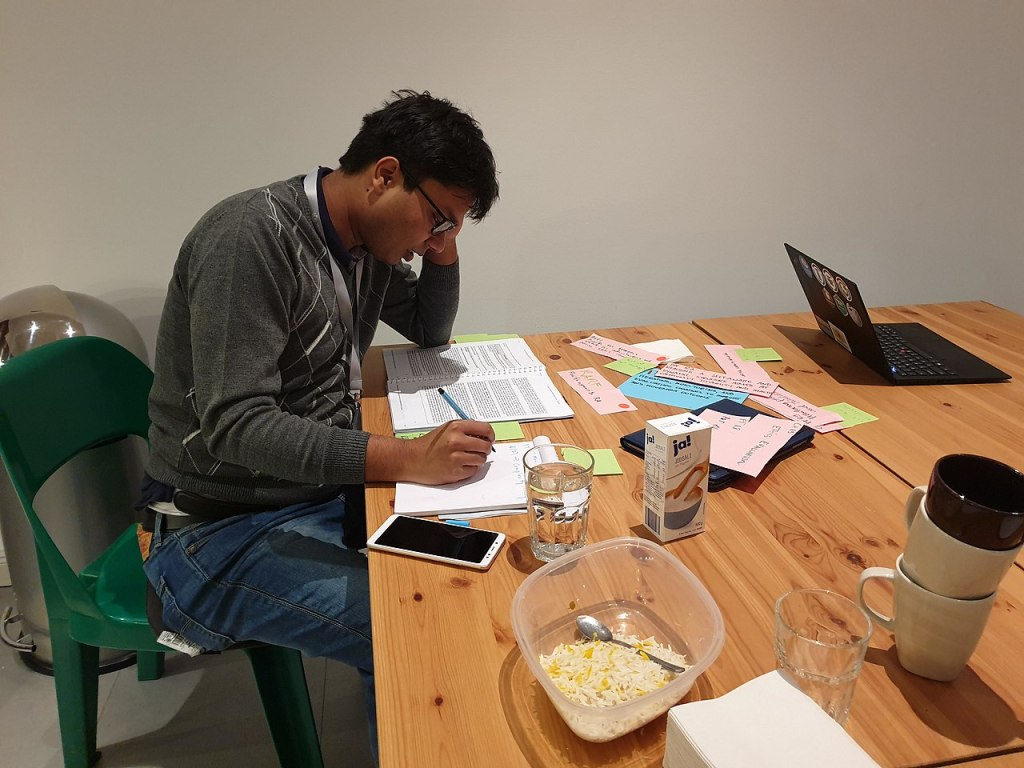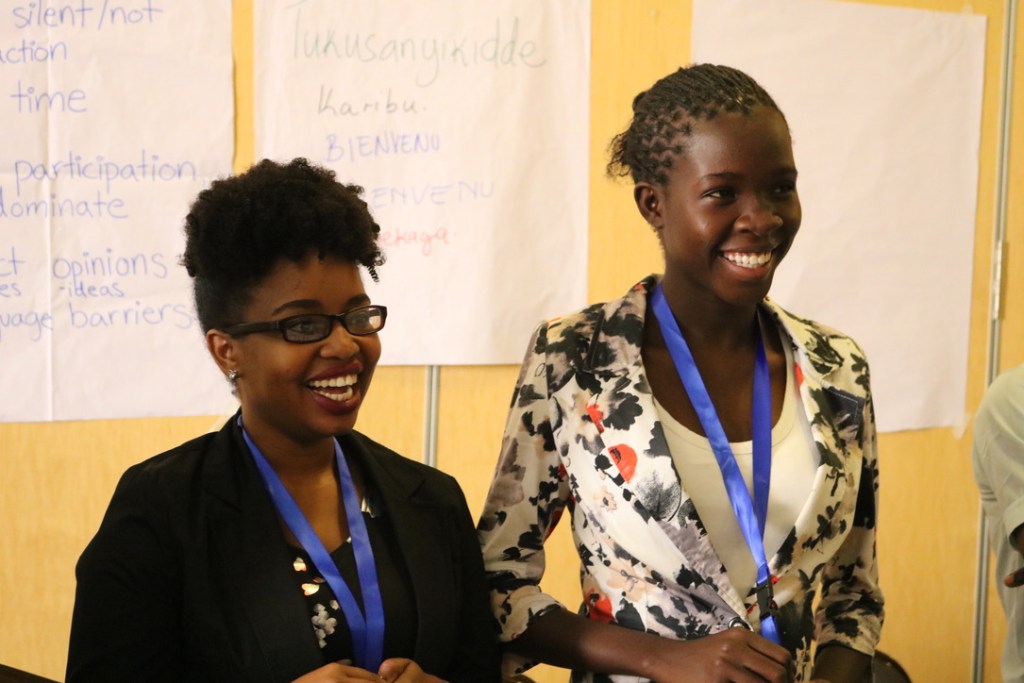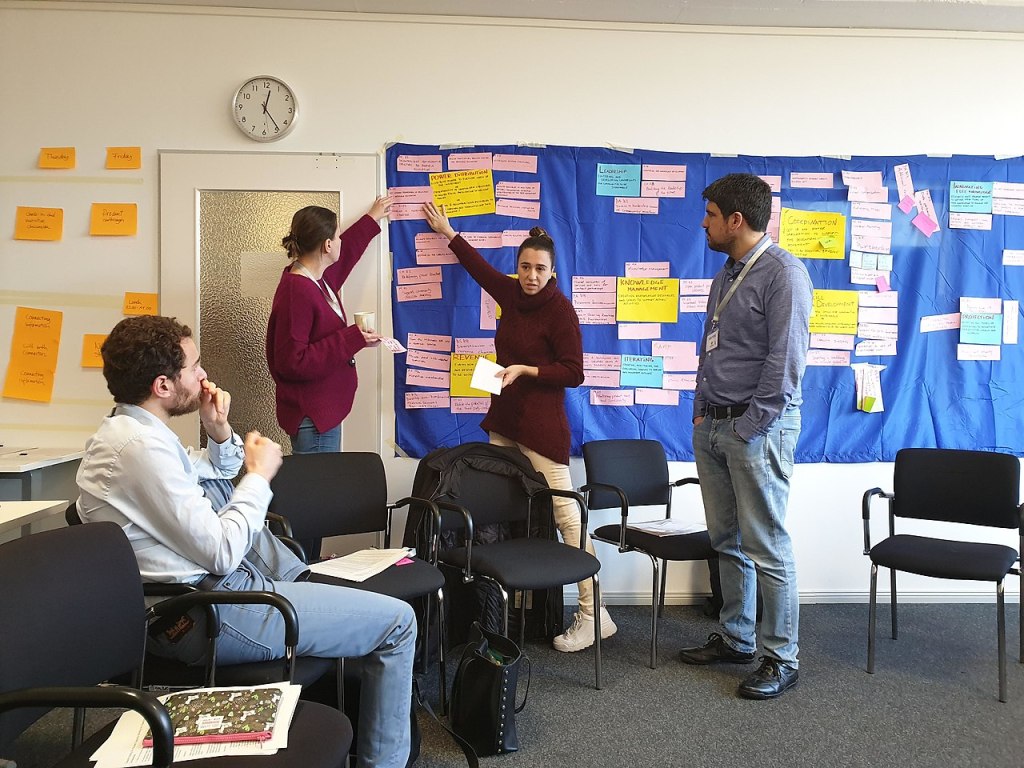
This post is part of a series inspired by the new Movement Strategy Playbook: Lessons Learned from Wikimedia’s Movement Strategy Process
One common question in any open or participatory process is: does working open mean it’s “impossible” to plan in advance? Is working open or being iterative or agile just about constant scrambling, and making stuff up as you go along? What’s the right balance between preparing and planning, versus waiting to see who shows up and adapting as you go?
Getting the balance right
This tension has become widespread. There’s now broad understanding that the “old” or traditional way of doing things (a “waterfall” type approach where a small subset of people go off into a cave and try to make the perfect plan, only to have it fail once it encounters reality) doesn’t work. But the alternative — which often involves simply repeating buzzwords like “iterative” or “emergent” or “agile” a lot — suffers from its own problems. Inviting people into hastily prepared or sketchy processes isn’t necessarily a great use of their time. Doing things at the last minute isn’t necessarily “agile” if you just end up inducing panic and confusion. And sometimes it can feel like using these buzzwords is really just a cover for “poorly planned.”
What did we learn from Movement Strategy participants?
Many of the participants we spoke to as part of the Movement Strategy Playbook spoke to this tension. Some of what we heard:
- “Iteration is not the same as ‘constant scrambling.’ There was a lot of fetishizing ‘iteration’ as a way to avoid doing planning.”
- “Changes happened too often, and made it harder for people to digest and understand at their pace.”
- “It’s hard to participate in a thing you don’t understand, or that keeps changing all the time.”
- “One of the biggest problems for us as Strategy Liaisons was: the frequent changes to the process. It wasn’t that the process was too complicated, but it was redesigned several times on the way.”
So what’s the solution? What we heard most often from Movement Strategy participants was:
- Invest in up-front planning. Slow down at the beginning of the process to go faster later on.
- Do regular reflective practice. Schedule regular “tuning sessions,” group learning moments, or retrospectives into your process. These are explicit moments to surface learning and make course corrections as you go. Without these key moments, you get all of the hassle of an iterative process (uncertainty and frequent changes) without the benefits (the ability to adapt and improve based on what you’re learning along the way.)

Invest in Up-Front Planning
Across the Movement Strategy participants we spoke with, there was widespread agreement: investing in up-front planning was essential to avoiding delays, confusion and pain later in the process.
- “Value the up-front work. Take the time to do planning, and do it well — it will save you in the end.”
- “When enough time is given to planning, you don’t get bogged down later. Rushing the planning phase just creates bottlenecks later on.”
- “Don’t do planning at the same time as hiring / on-boarding. It’s unrealistic.”

Diraneyya / CC BY-SA 4.0
Do regular reflective practice sessions
“Have a rhythm for reflection and small improvements.”
Any iterative process thrives on having regular moments to pause, surface learning, and make small improvements together. The Movement Strategy participants we spoke with told us that scheduling these reflective practice sessions (sometimes called “after action reviews,” “retrospectives,” or “tuning sessions”), and doing them a regular cadence is crucial. Some of what we heard:
- “You need to include milestones into the project for design iteration — explicit ‘pause’ moments to focus and shift. And you need to schedule them in up front.”
- “To be effective [with reflective practice], you have to plan it out and make intentional time and space for it — as opposed to iteration as a reactive scramble. A lot of knowledge was lost because we lacked this reflective ‘lessons learned’ culture.”
- “You need to create a culture of sense-making. A space where debate and dissent and different and opposition is invited, so that we can look at things from a different perspective. It’s about surfacing trends, patterns, dissenting voices, things that gave you pause.”
Tools for doing reflective practice well
- Group retrospectives. This is one common meeting design and “recipe” for guiding a group through a set of steps where they reflect, discuss, and generate actionable improvements together. These can be done in as little as 30 minutes, or as long as 90 minutes. Here’s a recipe for how to do them — there are many others.
What else?
What other tools do you use to do smart up-front planning and reflective practice? What other tools would you add to the Movement Strategy Playbook? Please add as comments here or add them directly to the playbook.

Can you help us translate this article?
In order for this article to reach as many people as possible we would like your help. Can you translate this article to get the message out?
Start translation